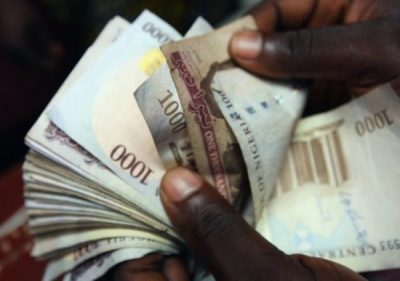98% of businesses in Nigeria’s informal sector pay taxes… but to non-state actors – Report
The research firm disclosed this in its report titled, “Under the Hood: A Look into Taxation in Nigeria’s Informal Sector”.
The informal sector has business activities that operate outside of government regulation and are largely unregistered.
They include commercial bus drivers, artisans such as dressmakers, hairdressers, vulcanisers etc., mainly those in the low socio-economic strata, with low skills and poor education.
It surveyed the informal sector in nine states across Nigeria, including the Federal Capital – Abuja, Anambra, Bauchi, Cross River, Delta, Oyo, Kano, Lagos and Rivers.
Nigeria’s tax-to-gross domestic product (GDP) ratio at 6 percent is below the World Bank’s recommendation of a minimum of 15 percent for economic growth and poverty reduction.
According to SBM, a major reason for the low tax-to-GDP ratio in Nigeria is the large size of the country’s informal economy.
The informal sector is “estimated by the International Monetary Fund to be around 65 percent of the GDP, which is higher than the sub-Saharan average of 34 percent. By comparison, the informal economy in Europe is 23 percent of its GDP, and 17 percent of the GDP in OECD countries.”
The SBM report added that a participant in the informal sector earns about N150,000/month on average and pay to prevalent tax groups, including trade unions.
“Most (38 percent) participants in the informal sector earn N5100 a day and above, followed by those whose earnings are between N2100-N3000 and N3100-N4000, an equal percentage of 17 percent for both income groups,” the report said.
“16 percent of the participants earn between N4100-N5000, 8 percent earn between N1100-N2000, and a small percentage earn less than N1000.
“This shows that most informal sector participants earn between N2100-N5,000 and above. Segregating this by types of businesses shows that bus drivers (52%), open market traders (52 percent) and okada riders (48 percent) have more high earners (people who earn N5100 and above) than the other categories of informal businesses.
“Also, a slim majority in the hairdressing (33 percent) and dressmaking (30 percent) businesses also earn between N5100 and above. Vulcanisers have the highest percentage of people who earn less than N1000.”
The report added that most of the tax payments were made to prevalent tax groups such as state governments, local governments, market organisations and unions. They paid the taxes either daily, weekly or monthly.
It stated that taxes are paid to governments, trade unions are largely informal with no legal backing or framework. This is because they can command compliance from their members. These are “lords” or members of the union who acts as tax collectors.
Also, a significant number of businesses in the informal sector pay multiple taxes in Delta and Lagos.
“About 39 percent of the respondents were taxed by the local government, 30 percent said they were taxed by their unions. 16 percent of the taxes accrued to market organisations, while 15 percent of the taxes went to the state government,” the report added.
“The location of the informal sector participants is also a determining factor with regards to the number of groups they pay taxes to. For instance, while the responses show that all participants in Bauchi paid taxes to only one group, there is a significant number of respondents in Delta and Lagos who pay taxes to more than three groups.
“Also, the type of business that a respondent is involved in also determines the number of tax collectors they may encounter.
“Bus drivers are more likely to pay taxes to more than three groups than those in the other forms of business and on the whole, multiple taxations is recorded across all the business types. No business group had not experienced multiple tax collection by different groups.”
The report advised the government to set a mechanism in place to incorporate the informal sector into the tax base of the country. It identified the NIN registration as one way to give a foundational identification to Nigeria upon which tax numbers can be tied.
In May, Zainab Ahmed, minister of finance, budget and national planning, said the federal government is planning to attract more taxpayers by ensuring efficient tax administration.
Ahmed had explained that the government will do this by deploying modern technology-driven processes and systems to facilitate quantum growth in tax revenue collection.
Also, Mohammed Nami, executive chairman of the Federal Inland Revenue Service (FIRS), had said the adoption of technology is needed to improve tax collection and block revenue leakages.


